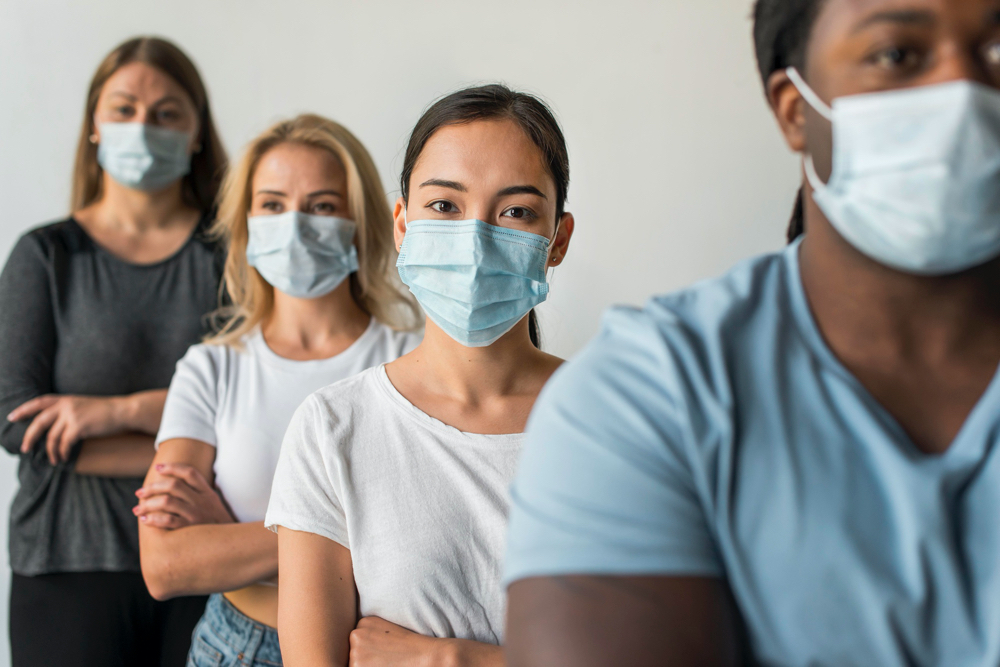- Fast results
- 4,000+ locations
- 4.8 star rating
Need Help? (888) GET LABS


With the outbreak of Coronavirus Disease 2019 (COVID-19), public panic becomes more common in many countries. According to the John Hopkins University’s record through the Center of Systems Science and Engineering, there are 116,119 confirmed cases worldwide with 4,088 deaths in total as of March 2020.
COVID-19 is a newly identified strain of coronavirus that originated in Wuhan, China. Coronavirus is commonly found in animals but they are transmitted to humans via close contact and even through consuming these animals. COVID-19 can be acquired from the droplets coming from an infected individual via coughing, sneezing, and contact with objects that have been exposed to the said droplets.
People infected with COVID-19 experience respiratory difficulties almost similar to pneumonia that include the following:
Due to the rapid spread of the disease, people have been hoarding materials such as toilet paper, soap, and even face mask without even understanding the basic precautions. Facemask, as reiterated by the World Health Organization, must be worn when a person is sick otherwise it is alright not wearing it in public.
Here are 10 practices you can do every day to protect yourself from the risk of coronavirus infection (COVID-19):
Properly washing your hand can actually save you from getting infected by COVID-19. Using soap and water can eliminate the virus but it takes the correct way of doing it. Hand washing should be done by running water. Once you have applied the soap on your wet hands, rub them together for at least 20 seconds. Make sure that you wash all surfaces including the wrists, the back of your palms and in between fingers. Rinse your hand thoroughly and dry them using a clean paper towel.
The entry points of the virus can generally found on your face specifically the mouth, nose, and even the eyes. To prevent the virus from entering your body, avoid touching these parts especially if you have not washed your hands. If there is a need for you to touch your mouth, nose, or eyes, make sure your hands are thoroughly clean or use a clean tissue in doing so.
Coronavirus can attach to surfaces from several hours to days. Using alcohol or any other disinfectant, frequently clean objects that are regularly touched such as cell phones, elevator buttons, and doorknobs. In your work station, consistently wipe your desk and wash your cups and utensils. Likewise, increase the frequency of cleaning items inside your house including toys, sofa, etc.
Maintain a safe social distance from people who are showing COVID-19 symptoms. At the early onset of the outbreak, many establishments and public areas such as malls and airports have been using infrared thermometer or temperature gun to monitor fever. If you know someone who is sick, refrain from interaction especially if you have a weak immune system.
When coughing or sneezing, make sure you cover your mouth with a tissue. Immediately dispose of the used tissue. Likewise, immediately cover your mouth and nose when someone coughs or sneezes.
The immune system is responsible for combatting pathogens or disease-causing microorganisms like the coronavirus. Intake of Vitamin C can help you strengthen your immune system. Regular exercise can also do the trick.
A healthy diet can secure a better fight against viruses. Eating foods rich in ascorbic acid such as oranges, and leafy vegetables ensures the production of white blood cells that fight off foreign body invaders such as the coronavirus.
Sleep deprivation can compromise your immune system. In this case, you can be very vulnerable to infection. Get enough sleep and keep yourself away from stressful activities that could weaken your immunity from the disease.
Forget about going out of the country or constantly travelling out of your hometown as long as the pandemic is still widespread. With the absence of vaccines for COVID-19, anyone can be a carrier the same way that anyone can be susceptible. Avoid travelling to places that have recorded cases of COVID-19.
Going to public events such as concerts and even small gatherings can increase your risk of getting infected. The incubation of the disease takes about 2 to 14 days and some people are asymptomatic from the disease. Hence, people can be carriers of the virus even without showing symptoms just yet.
More than the risk of coronavirus infection is the risk of missing out on the basic precautions that anyone can take due to a lack of information. Despite an increasing number of confirmed cases and death tolls, the number of people who have recovered from the disease is fortunately high with 308,215 which simply means that the mortality rate is lower than expected. Still, as long as the COVID-19 pandemic continues to spread like wildfire, we must always protect ourselves from the infection and the misinformation associated therein.

© Copyright 2024 Personalabs. All Rights Reserved.

We now offer pharmacy discounts through our PersonalabsRx platform.
We now offer pharmacy discounts through our PersonalabsRx platform.